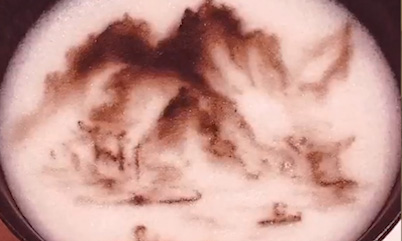11 years on, Fukushima radioactive waste still tough challenge for Japan
TOKYO, March 11 (Xinhua) -- Eleven years after the quake-induced Fukushima disaster, the aftermath of the nuclear meltdown, not least a large amount of contaminated water, remains a grave challenge for Japan as well as for the rest of the world.
On March 11, 2011, a magnitude-9.0 earthquake struck off the coast of Fukushima Prefecture in Japan. An earthquake-triggered tsunami engulfed the Fukushima Daiichi Nuclear Power Plant, causing core meltdowns in units one to three and leading to the worst nuclear crisis since Chernobyl.
Little progress has been made over the past year on the most pivotal and hardest work of decommissioning the Fukushima Daiichi power plant -- how to remove the nuclear residue from the meltdown. Japan's International Research Institute for Nuclear Decommissioning estimated that the total weight of nuclear waste mix from melted fuel rods and other materials in pressure vessels that melted during the accident could be 880 tons.
Since the end of 2011, No. 1 to No. 3 units have been in a stable state of low temperature cooling, but the internal radiation is still very high, making it difficult for personnel to work in close proximity. Relevant work has to rely on remote tools such as remotely controlled robots and mechanical arms, but not a single piece of nuclear residue has been removed so far. The Tokyo Electric Power Company (TEPCO) said it plans to first try to remove the nuclear residue from unit 2 this year.
Hiroaki Koide, a retired researcher at Kyoto University, said the Japanese government and TEPCO's 30-40 year "roadmap" for decommissioning the reactors was an "illusion" that could not be achieved because it would be "impossible even in 100 years" to remove the large amount of scattered nuclear debris, which would have to be sealed in a "sarcophagus."
In April last year, the Japanese government officially decided to discharge the nuclear contaminated water into the sea starting in the spring of 2023. The contaminated water at the Fukushima Daiichi Nuclear Power Plant contains radioactive cesium, strontium, tritium and other radioactive substances.
The Japanese government and TEPCO said the Advanced Liquid Processing System (ALPS), a multi-nuclide removal system, can remove 62 radioactive substances except tritium, which is difficult to remove from water.
Japanese fishing groups strongly oppose the plan to discharge contaminated water into the sea. Opposition parties, including the Constitutional Democratic Party of Japan, also criticized the Japanese government's plan and demanded its withdrawal.
About 60 percent of the 42 mayors in the disaster-stricken Fukushima, Miyagi and Iwate prefectures opposed the decision. The Japan Federation of Bar Associations submitted a statement opposing the plan to Japanese Prime Minister Fumio Kishida and others, urging the government to consider other measures, such as mixing contaminated water with cement and sand.
At the invitation of Japan, an investigation team of the International Atomic Energy Agency (IAEA) visited Japan on Feb. 14-18 to complete its first field investigation.
Lydie Evrard, deputy director general of the IAEA, said Japan had studied several options for treating the contaminated water, but ultimately chose the option of discharging it into the sea, and the Japanese government invited the IAEA to conduct a safety review, hoping that the agency would give basic policy support to the treatment plan. What she pointed out was that it was up to the host country to decide how to deal with the contaminated water, and that the agency provides only technical assessments, not options.
China is seriously concerned about and firmly opposes Japan's unilateral decision to discharge the nuclear-contaminated water into the sea and its proceeding with the preparatory work, Chinese Foreign Ministry Spokesperson Zhao Lijian has said.
He stressed that the handling of the nuclear-contaminated water from Fukushima is never Japan's private matter. Instead, it bears on the marine environment and public health of the whole world.
Japan should heed and respond to the appeals of neighboring countries and the international community, and rescind the wrong decision of dumping the water into the sea. "It mustn't wantonly start the ocean discharge before reaching consensus with stakeholders and relevant international institutions through full consultations," Zhao said.
Photos
 Traditional tie-dye products of Buyi ethnic group in Guizhou popular among tourists
Traditional tie-dye products of Buyi ethnic group in Guizhou popular among tourists Girls from mountainous areas in Hainan pursue football dreams
Girls from mountainous areas in Hainan pursue football dreams Chinese artist forms elaborate images using whisked tea foam in revival of Song Dynasty’s cultural splendor
Chinese artist forms elaborate images using whisked tea foam in revival of Song Dynasty’s cultural splendor Wild lilies in full bloom as snow melts in Xinjiang
Wild lilies in full bloom as snow melts in Xinjiang
Related Stories
- 47th Int'l Food and Beverage Exhibition held in Chiba, Japan
- Spring scenery seen from Nishihirabatake Park in Kanagawa, Japan
- Japanese DM refutes ex-PM Abe's nuclear weapons sharing idea
- Hosting U.S. nuclear weapons "completely unacceptable": Japan's PM
- China urges Japan to properly handle historical issues
Copyright © 2022 People's Daily Online. All Rights Reserved.






